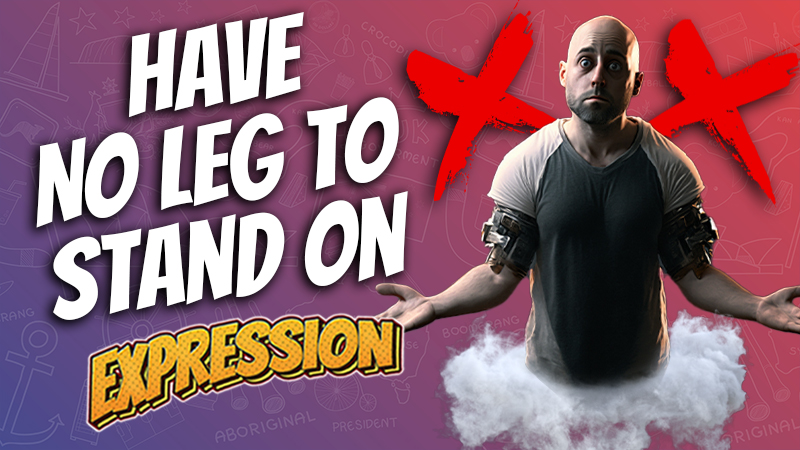Ep065: Pronunciation – Will + Have Contraction = ‘ll’ve
In this episode of Aussie English, Ep065: Pronunciation – Will + Have Contraction = ‘ll’ve, you’ll learn how to contract the future perfect tense. E.g. “I will have done” is often contracted by native speakers when speaking to e.g. “I’ll’ve done”.
AE 065: Pronunciation – Will + Have Contraction = ‘ll’ve
G’day guys. Welcome to this episode of Aussie English.
Today is going to be another pronunciation episode. Today I’m hoping to show you how to contract the future perfect tense. So, I’m just going to tell you that it’s the future perfect tense in case you feel like looking it up later on and doing a little bit of a grammar in your own time, but we won’t get too bogged down in the technical aspect of these contractions and learning these pronunciation things. [I] just thought I’d mention it up front.
So, the future perfect tense is ah… when you say, “Will have done something”. So, it’s something in the future that has happened. Talking about it in the past but it’s… it hasn’t happened yet. It’s going to happen in the future but it’ll be over, it’ll be finished by the time you talk about it.
So, for example you could say, “He will have arrived by then”. So, “by then”, by that point that you’re talking about in conversation he will have arrived. And there’s different ways of contracting this in English. So, I noticed that I did this in one of the previous episodes of Walking With Pete. I think it was the Pokémon Go episode. When I was writing out the transcript I noticed that I contracted “Will” and “Have” into “’ll’ve”. So, what do I mean by this? Different ways of saying the phrase, “he will have by then” include, “He’ll have arrived by then.” And so there I’ve contracted “Will” and turned it into “He’ll have arrived by then”. You can contract “Have” and attach it to “Will” in the example, “He will’ve arrived by then.” So, “Will’ve”. And you can also contract both “Will” and “Have” onto “He” where you would say, “He’ll’ve arrived by then.” And this is what I noticed that I did in this previous episode, and what I do quite often when I’m talking about things that are done, that are finished, in the future. I will contract both the words “Will” and “Have” into “’ll’ve” onto the pronouns.
So, now we’ll just do a little listen and repeat exercise where I will go through the different pronouns with the contracted “Will” and “Have” onto them, and you just repeat after me.
I’ll’ve x 3
You’ll’ve x 3
He’ll’ve x 3
She’ll’ve x 3
We’ll’ve x 3
They’ll’ve x 3
Note: when “Have” follows “Will” it is never WRITTEN as contracted. So, even if someone says, “I’ll’ve”, it will always be written as “I’ll have”.
There you go. So, practice those a few times each time you listen to this episode and you’ll get used to saying “I’ll’ve”, “You’ll’ve”, “He’ll’ve”, “She’ll’ve”, “We’ll’ve”, They’ll’ve” incredibly quickly and naturally when you speak. So, I’ll give you some examples of when and how you would use the future perfect tense. So, some examples going through the different pronouns:
“I’ll’ve gone home by that point.” I’ll have gone home by that point. So, by that point that I’m talking about in the future, by then, I will have gone home already. So, I will have gone home. I’ll have gone home by that point.
“You’ll’ve heard from me by then.” So, by then you will have heard from me. By that point in time, whenever it is in the future, I will have already spoken to you. You will have heard from me. You’ll have heard from me.
“He’ll’ve asked you for help.” So, he will have asked you for help. He’ll have asked you for help.
“She’ll’ve seen everything.” She will have seen everything. She’ll have seen everything.
“We’ll’ve read then entire book by the end of the day.” So, by the end of the day we will have read the entire book. We will have finished reading the entire book. We’ll have read the entire book.
And, “They’ll’ve finished their degree by the end of the year.” So, by the end of the year they will have finished their degree. They’ll have finished their degree by the end of the year.
So, you’ll see there too that I can mention the point in time in the future before I say the future perfect tense in the sentence. So, “by that point I’ll have gone home”, “I’ll have gone home by that point”. Either way doesn’t matter. It’s totally up to you guys how you structure those kinds of sentences. And you’ll also have noticed in those sentences that I verify a lot of them by using a specific point in time. So, when you use the future perfect tense like this, and you say “I’ll’ve”, “You’ll’ve”, “He’ll’ve”, “She’ll’ve”, “We’ll’ve”, They’ll’ve”, and then you say the thing that has been done using whatever verb you use, often you’ll say exactly when or by when that has happened. So, you might hear things like:
By then
By that point
By tomorrow
By next week
By the end of the day
By the end of the week
By the end of the year
So, you’re just specifying a time in the future by which or by when the thing will have been completed, will have happened, will have been done.
Examples here with those different points in the future:
He’ll’ve finished by then
He’ll’ve finished by that point
He’ll’ve finished by tomorrow
He’ll’ve finished by next week
He’ll’ve finished by the end of the day
He’ll’ve finished by the end of the week
He’ll’ve finished by the end of the year
So, I’m going to read out some sentences now guys. One last example before we finish this episode where I will read out these sentences and you guys convert them into the contracted forms. So, for example, I’ll say, “He will have done” and you have to try and anticipate the contracted form and repeat it after that, and then I will repeat the contracted form so that you can check that you were correct. So, “He will have done”, you guys “He’ll’ve done” and then I’ll say, “He’ll’ve done”, and you can hear it. So, contract these sentences after me:
I will have gone to the beach.
I’ll’ve gone to the beach.
You will have seen him at that point.
You’ll’ve seen him at that point.
He will have found out the truth by the end of the week.
He’ll’ve found out the truth by the end of the week.
She will have finished her degree.
She’ll’ve finished her degree.
They will have done it by then.
They’ll’ve done it by then.
We will have been on holiday for three weeks.
We’ll’ve been on holiday for three weeks.
That’s when I will have left.
That’s when I’ll’ve left.
Tuesday morning is when you will have arrived.
Tuesday morning is when you’ll’ve arrived.
I hope tomorrow he will have come home.
I hope tomorrow he’ll’ve come home.
By the end of the year she will have graduated.
By the end of the year she’ll’ve graduated.
By the time you arrive we will have already started.
By the time you arrive we’ll’ve already started.
Tomorrow they will have moved house.
Tomorrow they’ll’ve moved house.
Note: remember, “I’ll’ve” would always be written as “I’ll have”, where “have” isn’t written as contracted, when writing formal English.
So, that’s the episode for today guys, you know, don’t worry too much about having to memorise these things, about having to nail it and get it perfect every single time you speak with people. Worst case scenario you can just say “We will have”, “I will have”, etc. People will understand what you mean. But the more you listen to these kinds of episodes and repeat after me and say these kinds of exercises, the more naturally you’re going to find that you will say these contractions when you speak English. And, you’ll just get quicker at speaking English, you’ll sound more like a native, and you will be more quickly understood by other people. So, again, don’t worry about being perfect, don’t worry about remembering every single detail, just keep practicing these lessons from time to time and you will improve. So, until next time guys, all the best!
Here's what you get when you sign up!
- Read while you listen using the Premium Podcast player.
- Understand every word in every episode.
- Download all PDF transcripts and MP3s for 600+ episodes.
- Get access to bonus member-only episodes.












Responses